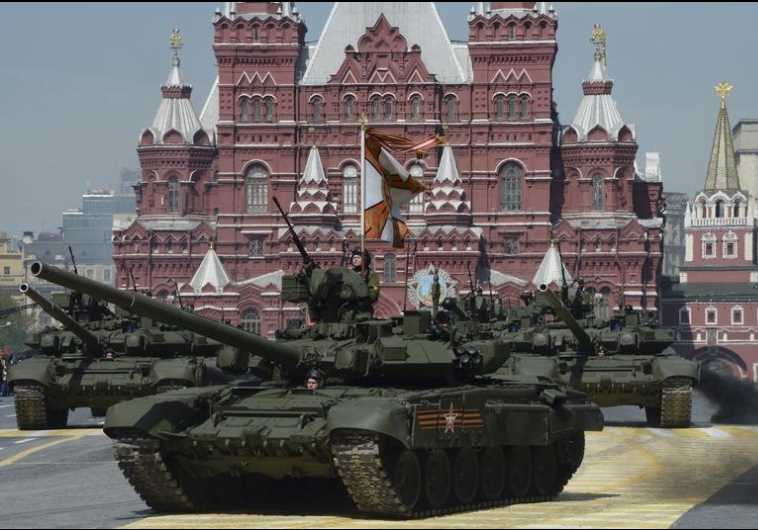Sources say Russian weapons in Syria are defensive, housing erected for 1500 soldiers
These weapons, sources claim, are to be used for base security as opposed to offensive military capabilities.
 Russian T-90A main battle tanks drive during the Victory Day parade at Red Square in Moscow
Russian T-90A main battle tanks drive during the Victory Day parade at Red Square in Moscow